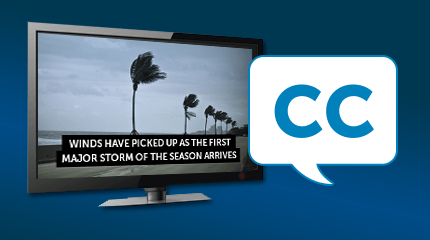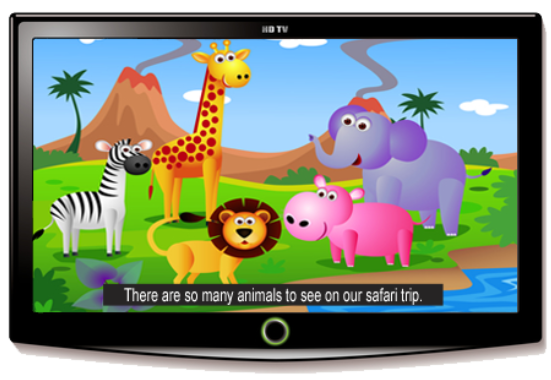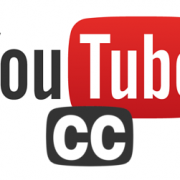3 reasons why closed captions aren’t just for the hearing impaired
We tend to associate subtitles and closed captions with deaf and hard of hearing people, but that’s only the tip of the iceberg.
In reality, having closed captions on your videos, be they professional instructional videos, YouTube videos, or movies and TV shows, is an advantage across the board, and not only for those who struggle with their hearing.
Here are three reasons why you should always add closed captions to your footage.
Help everyone understand what’s going on
It may surprise you to learn that more people speak English as a second language than native speakers.
There are around 400 million native English speakers, but over a billion non-natives who speak the language.
For anyone who speaks English as a second language, videos can be difficult to understand, especially if the people speaking have accents, mumble, or speak too fast.
Closed captions make it easier to follow along with the dialogue, especially important if these are educational videos with technical terminology.
And of course, even native speakers have a hard time with some accents, and with over 50 different dialects in the British Isles alone, it’s not hard to see why.
Helps people retain more information
A simple yet highly effective way to help children build their foundational reading skills is by using closed captions.
Studies have shown time and time again that closed captions can help boost word recognition, phonics, and fluency, no matter what level they are at.
Closed captions also help maintain concentration, especially for viewers with learning difficulties, autism, or attention deficits.
For older students, captioning helps to retain information easier, improving test scores and reading comprehension.
Helps with your business
If you make videos for your business and put them online, then closed captions are essential for a number of reasons.
Captioning your videos is a way for Google to see what they’re about, and thus rank you higher in their search results. This is a clever way to add an extra SEO string to your bow, giving you an advantage over competitors.
And of course, the more accessible your video is, the more people will watch it.
Viewers are more engaged when they can read along with the dialogue, with research by Facebook showing an additional 12% increase in viewing time when captions are used.
Professional Closed Captions
In a recent survey, Ofcom, the regulator for communications services used in the UK, found that a staggering 80% of viewers who used closed captions were not deaf/hard of hearing.
If you still think captioning is just for the minority then you’re in danger of becoming obsolete.
Adding captions to your videos engages potential clients more, helps your viewers retain information, and opens accessibility to everyone.
Whether it’s promotional or training videos for staff or social media videos for the world to see, we can help.
To find out more about how live captions for business events can add value to your business communications, contact us today.












Trackbacks & Pingbacks
[…] 3 reasons why closed captions aren’t just for the hearing impaired […]
Leave a Reply
Want to join the discussion?Feel free to contribute!